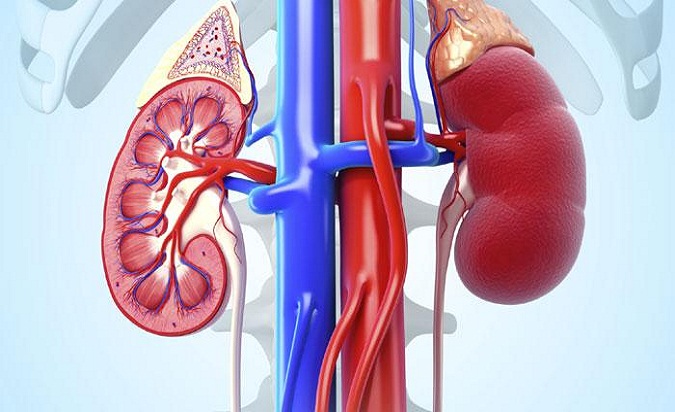Millions of adults are living with kidney diseases and most of them don’t even know about it. While people get their blood pressure and cholesterol levels checked on a regular basis, they fail to get creatinine test done to detect any unknown kidney problems. According to Global Burden Disease (GBD) study 2015, chronic kidney disease (CKD) is ranked as the eighth leading cause of deaths in India.
According to Dr Sudeep Singh Sachdev, Nephrologist, Max Smart Super Speciality Hospital, “There are a number of physical signs of kidney disease, but sometimes people ignore or confuse them to other conditions. Also, be sure to mention any symptoms you’re experiencing to your nephrologist. But if you have hypertension, diabetes, CAD, a family history of the same or kidney failure or even if you’re older than 60 years, it’s advisable to get kidney tests done on regular basis.”
Therefore, be watchful of these following symptoms listed below and get the confirmatory tests before there’s any delay. Early warning signs may include:
Swelling in ankles, feet or legs: Decreased kidney function leads to sodium retention which may cause swelling in your feet, face and ankles.
Periorbital Edema: It is swelling or puffiness around eyes caused by the build up of fluid in the cells or tissues. Besides various other reasons, it may develop as a symptom of a kidney disease too. Puffiness around eyes MAY indicate that your kidneys are leaking a large amount of protein in the urine, rather than keeping it in the body.
Weakness, fatigue, and decrease in appetite: You may feel tired or more exhausted than on normal days. This is largely due to build-up of toxins and impurities in the blood which results from poor kidney function.
Haemoglobin level falls, one might look pale: One of the common complications of kidney disease is anaemia. This can cause weakness and fatigue.
Changes in urine frequency: For instance, urinary output may decrease or you may feel the need to urinate more often, especially at night. It can be a warning sign as this indicates the kidney’ filters are damaged. Sometimes this can also be a sign of some urinary infection or enlarged prostate in men.
Foamy urine or blood in urine: Excessive frothiness in the urine indicates protein in the urine. And, sometimes when the kidney’s filters have been damaged, the blood cells start to leak out into the urine. In addition to signalling kidney disease, blood in the urine can indicate tumors, kidney stones or any kind of infection. Also, pus associated with urine along with fever or chills can be serious.
Dry and itchy skin: Healthy kidneys remove wastes and extra fluid from your body, and help make red blood cells which besides keeping bones strong maintain the right amount of minerals in your blood. Dry and itchy skin can be a sign of advanced kidney disease.
Back ache or lower abdomen pain: Severe pain in back, side or below the ribs can be an early symptom of kidney stone. Similarly, lower abdomen pain can be associated with BLADDER INFECTION OR stone in ureter the tube connecting the kidney and bladder.
Keeping your kidneys healthy
Kidney diseases are usually silent killers as during the early stages there may not be any noticeable symptoms. However, there are several ways to reduce the risk of developing kidney disease. So, why wait until your kidneys are diseased.
Follow the steps given below to look after the health of your kidneys:
- Drink plenty of water: This is most common and simplest way to keep your kidneys healthy. Consuming plenty of fluids, especially water helps the kidneys clear sodium, urea and toxins from the body.
- Low sodium/salt diet: Keep your sodium or salt intake in control. This means you need to cut off packaged/ restaurant foods too. Also, do not add extra salt to your food.
- Maintain appropriate body weight: Eat healthy and keep your weight in check. Also, eliminate saturated fats from the diet and emphasise on having lots of fruits and vegetables daily.
- Keep a regular control of blood sugar levels: Kidney damage in diabetic patients can be prevented if detected early. Therefore, it’s advisable to keep a regular check on your blood sugar levels.
- Monitor blood pressure: In case you have a problem of hypertension, maintain a healthy lifestyle and make necessary dietary changes if possible. Normal blood pressure level is 120/80. High blood pressure can cause kidney problems besides leading to a stroke or heart attack.
Get kidney function tests and urine analysis done regularly. In case you have diabetes, hypertension, obesity or if you are over 60 years get kidney tests and urine analysis done regularly. In case of even slightest protein detection in urine, make sure to visit your nephrologist. Diabetics should be especially watchful of this.
